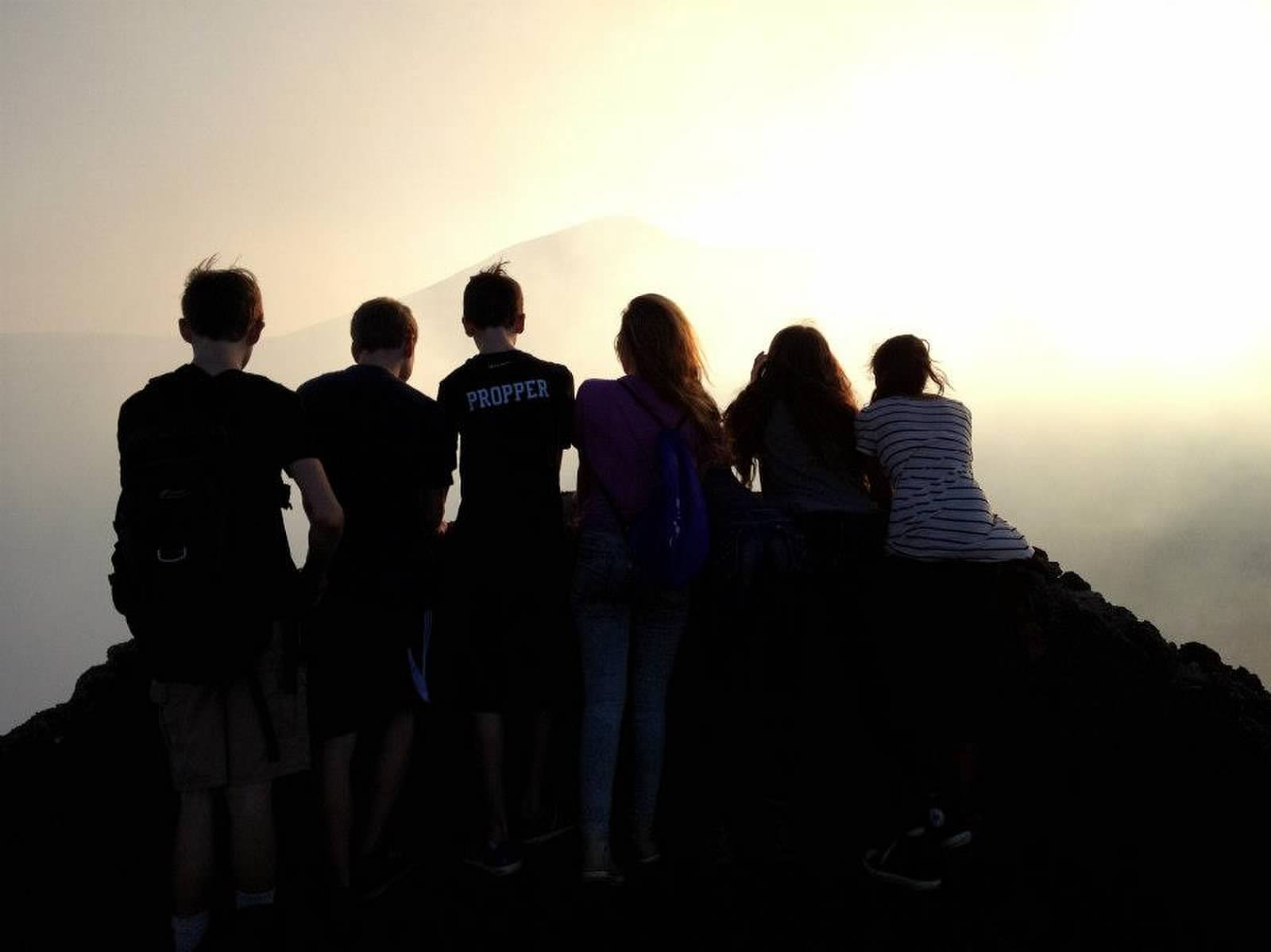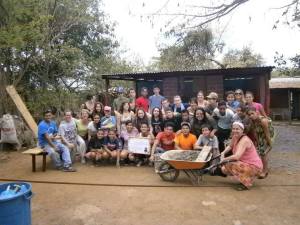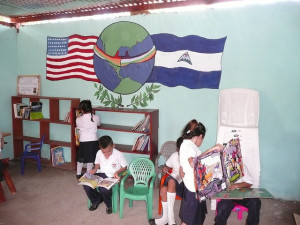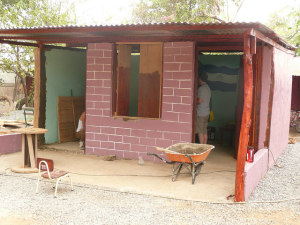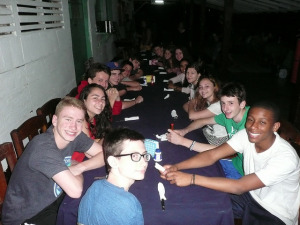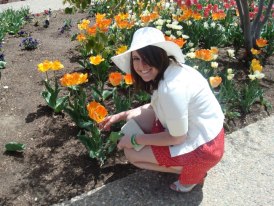Read about the challenges and rewards of the PEACE Process, and how it fits into Dos Pueblos' work in this informative piece by Paul Martin:

Texas Lutheran University MASA. From L to R Brendon Huron, Brittany Flores, Jacob Almaguer, Paul Martin, Jennifer Garcia, Professor Jennifer Mata.
By Paul Martin
I have been struggling to articulate and learn about efforts toward a (mostly theoretical) process of conservation and development of sustainable communities since the 1980s. Over time I have come to call these efforts: positively ethical applied community ecology*. Moreover, in my attempts to begin to get the rubber to meet the road toward facilitating the realization of this process, I have been working with Ogallala Commons in local community gardens along with other organizations. I have especially enjoyed working with Dos Pueblos in New York—a model NGO—on this grassroots PEACE process that is humble yet comprehensive in achieving social and ecological justice and equity.
On Wednesday, April 8th, Lupe Romero Ramsey (Executive Director of Dos Pueblos-NY-Tipitapa, Nicaragua Sister City Project) and I were invited into a wonderful Mexican American Studies class at Texas Lutheran University in Seguin, Texas by Professor Jennifer Mata. We began by getting to know the class and inviting them to express their current goals toward a life of equity for all, and how this has been informed by their class at TLU. Then Lupe gave an overview of Dos Pueblos’ work in Nicaragua that improves access to health, education and environmental awareness, and her life in international development in building sustainable communities with people-centered approaches.
As a class we discussed the reasons for the process of regeneration and conservation toward a resilient, sustainable community and why it makes sense, the need for a bottom-up approach, and the challenges of developing confidence amongst all of the stakeholders including local leaders, the poorest and most disenfranchised.
With a focus on the local Seguin community, and to some extent community gardens, we invited dialogue from the students concerning successes and failures, and how we learn to succeed from our failures. For me, this was particularly empowering and energizing. The students of the class provided real world community reality for the theory—some of it sobering. In fact one delightful student, Brendon, beautifully summarized the rewards of service to local community (All of these very pleasant students provided great input and feedback!) This empowerment and recharging for me was reinforced when I chatted with Brendon later in the week at his workplace in a local food market, and then ran into Profesora Mata (and her lovely family) unexpectedly on two other occasions that week in Seguin. (These students truly made me wish I were “back in the classroom” again.)
Real and lasting relationships are highly rewarding yet challenging. This is truly what PEACE is about. I will be forever be grateful for these relationships afforded to me by Lupe and Dos Pueblos, here in Seguin, Texas, and in Tipitapa, Nicaragua.
…………………..
*This is basically lowering the individual and collective ecological footprints of the haves, curbing population growth rates, empowering the have nots, and regenerating/conserving habitat for other species … and realizing ecological economics. More specific actions are rapid appraisals of community/local ecosystems, facilitating holistic participation, goal-setting/policy development/action plan realization, assessment and replanning. Some necessary, and somewhat more specific actions include ecology across curricula & campuses of community entities, implementation of agroecology, use of appropriate technologies & processes, cooperatives, community supported agriculture, microenterprise financing, more native and perennial crops for agriculture, and appropriate governmental carrots and sticks.
Martin, P.B. and P. Prather. 1991. Sustainable agriculture: a process at the community level. American J. of Alternative Agriculture. 3(1)
Martin, P.B., K. Schantz and P. Sechrist. 2003. Toward conservation and development of sustainable community (locally and globally). Proc. Coloquio Internacional de Desenvolvimento Local, Universidade Catolica Dom Bosco, Campo Grande-MS, Brazil www.ucdb.br/coloquio/arquivos/Paul.pdf


